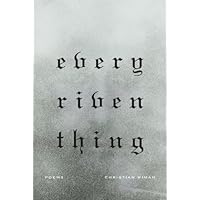I miss Seamus Heaney. Not that I knew him, or met him. I only know him through his poems, a couple of documentaries, and a book of interviews. But I miss him. Yes I can read his poetry, some of it I know by heart. Some of his poetry about his father, his upbringing in the country, his shrewd and qualified love for the land expressed in poem after poem – these I read, and can reread to my heart's content.
But I still miss him. By which I mean I can see clearly the emtpy spaces in our landscape left by his passing. By which I mean my sadness that there will be no further words which so wisely cherish and humanely critique this fragile, frightening complexity of human life in all its potential for ambiguity.
I miss him, by which I mean the indefinable lift given to our hearts when we know that there are writers who understand, who care, for whom human tragedy is not always an inevitable given, and whose moral rigour is reserved for the unnecessary cruelties and intransigent prejudices of human behaviour.
I miss him because his own experience of a troubled land created a poet whose compassion and forgivingness are often given words in poems which are universal in their healing and appealing power, teaching through words those human feelings that are the ultimate glory of human community, in which love is lived out in generous and consistent goodwill, humane judgement and a passionate commitment to the other.
I miss Seamus Heaney, but I have his poems, like this one below, which does for me what a good poem should do.
Digging
Between my finger and my thumb
The squat pen rests; snug as a gun.
Under my window, a clean rasping sound
When the spade sinks into gravelly ground:
My father, digging. I look down
Till his straining rump among the flowerbeds
Bends low, comes up twenty years away
Stooping in rhythm through potato drills
Where he was digging.
The coarse boot nestled on the lug, the shaft
Against the inside knee was levered firmly.
He rooted out tall tops, buried the bright edge deep
To scatter new potatoes that we picked,
Loving their cool hardness in our hands.
By God, the old man could handle a spade.
Just like his old man.
My grandfather cut more turf in a day
Than any other man on Toner's bog.
Once I carried him milk in a bottle
Corked sloppily with paper. He straightened up
To drink it, then fell to right away
Nicking and slicing neatly, heaving sods
Over his shoulder, going down and down
For the good turf. Digging.
The cold smell of potato mould, the squelch and slap
Of soggy peat, the curt cuts of an edge
Through living roots awaken in my head.
But I've no spade to follow men like them.
Between my finger and my thumb
The squat pen rests.
I'll dig with it.
